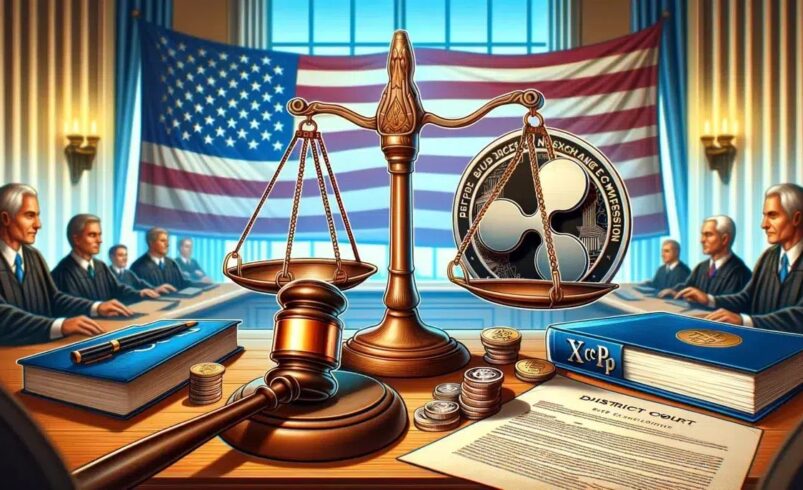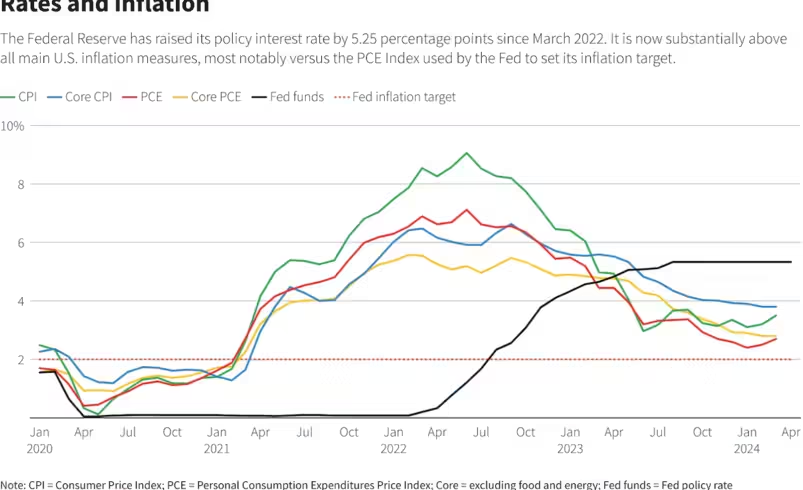Ripple’s legal chief, Stuart Alderoty, highlights the SEC’s inconsistent stance on crypto regulation, stirring controversy and intensifying the ongoing legal battle with the crypto industry.
Summary:
- Ripple’s Chief Legal Officer, Stuart Alderoty, challenges the SEC’s inconsistent views on crypto regulation.
- The SEC’s admission of misleading statements has caused uncertainty and debate within the crypto community.
- Ongoing legal battles may reshape future cryptocurrency regulation in the United States.
The U.S. Securities and Exchange Commission (SEC) has found itself at the center of a controversy regarding its statements on cryptocurrency regulation. A recent clarification by the SEC has sent ripples through the crypto industry, prompting reactions from major players and potentially reshaping the regulatory landscape. This development highlights the ongoing challenges in defining and overseeing digital assets within the traditional financial regulatory framework, and may have significant implications for the future of cryptocurrency regulation in the United States.
SEC Admission Ignites Crypto Regulatory Firestorm
The U.S. Securities and Exchange Commission (SEC) has recently clarified its stance on crypto asset securities, following allegations of misleading statements. This clarification came to light after Paul Grewal, Chief Legal Officer of Coinbase, published an article on the X platform highlighting inconsistencies in the SEC’s characterization of tokens.
In response to these claims, the SEC included a notable statement in footnote 6 of a revised complaint, saying “the SEC regrets any confusion it may have caused.” This admission suggests that the regulatory body had previously made incorrect assertions about certain tokens being securities in themselves, rather than as part of broader investment contracts.
Stuart Alderoty, Chief Legal Officer of Ripple, weighed in on this development, pointing out two significant implications. Firstly, he argued that the term “crypto asset securities” is potentially fictitious or misleading. Secondly, Alderoty emphasized that to prove crypto assets are investment contracts, the SEC would need to provide evidence of “contracts, expectations, and understandings.”
Stuart Alderoty further contended that this clarification has placed the SEC in a self-contradictory position regarding its approach to cryptocurrency regulation. This situation highlights the ongoing challenges and complexities in defining and regulating digital assets within existing legal frameworks.
The SEC’s admission and subsequent industry reactions have sparked renewed discussions about the regulatory landscape for cryptocurrencies. As the situation continues to evolve, it may have far-reaching implications for both current and future regulatory actions in the crypto space. Industry participants and legal experts are closely monitoring these developments, anticipating potential shifts in the regulatory approach to digital assets.
Also Read: Vitalik Buterin’s Ether Sales Spark Concerns of Ethereum Price Dip
Legal Showdown Escalates Over Crypto Classification
The ongoing legal battle between the SEC and cryptocurrency companies has intensified following these recent developments. Stuart Alderoty, Ripple’s chief legal officer and general counsel in the SEC vs. Ripple Labs case, has characterized the SEC’s latest submission as a “contradictory shift” and contends that it holds little sway. Alderoty posted on X (formerly Twitter) referring to the submission as another instance of a “hypocritical pivot,” highlighting what he sees as SEC Chair Gary Gensler’s inconsistency, manipulative actions, and appetite for expanded regulation.
Other legal experts have also weighed in, with lawyer James Filan ridiculing the SEC’s newfound concern for preserving judicial resources, pointing out the SEC’s previous attempt to pause all proceedings in the case. Pro-XRP lawyer John Deaton defended Alderoty’s characterization of the SEC as hypocritical, stating it reflects the view of the federal judge presiding over the matter. These developments underscore the growing tensions between regulators and the crypto industry as both sides continue to navigate the complex legal landscape surrounding digital assets.
Also Read: VanEck Executive Dismisses US Election Impact on Bitcoin, Sparks Debate
Post Views: 29




